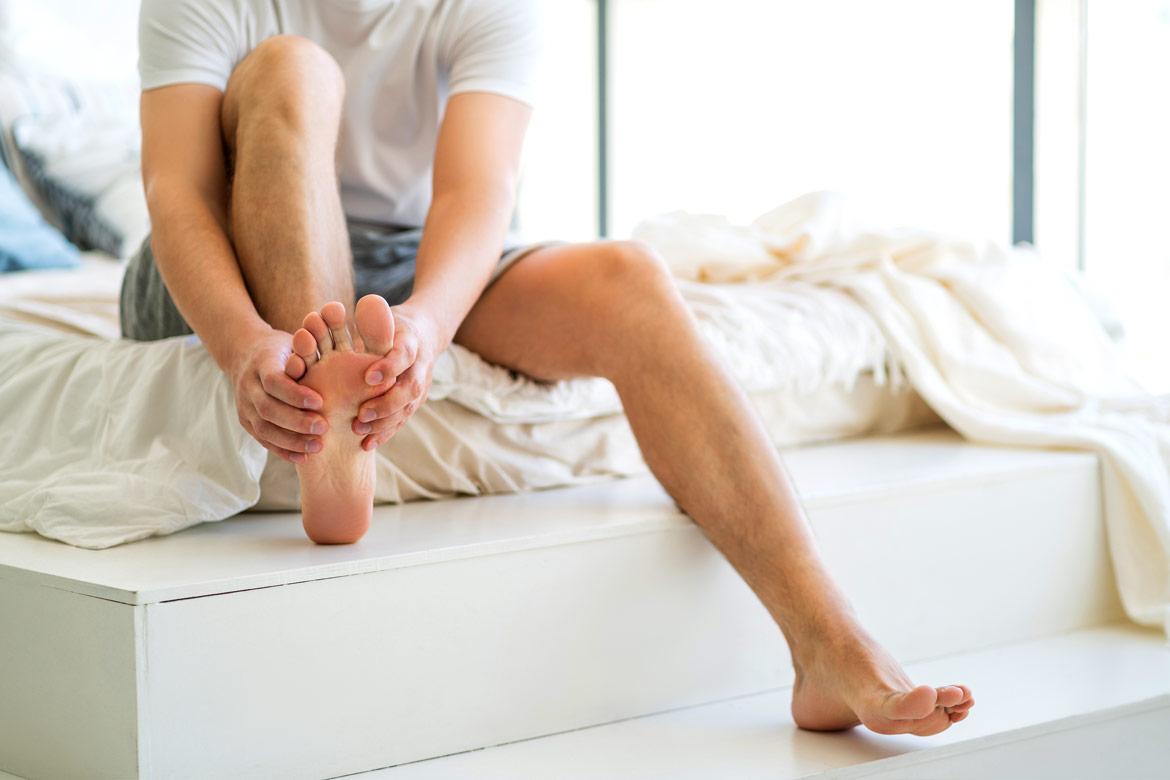
Neck Pain
How is neck pain diagnosed?
Your doctor will need to take your medical history and do a physical examination.
As part of the physical examination, your doctor will check for:
- Signs of tenderness, numbness and muscle weakness. Muscle weakness often manifests in the upper and/or lower limbs. Your doctor will conduct a thorough neurological examination.
- Neck mobility, by asking you to move your head forward, backward, or side to side.
Imaging tests
Your doctor may order imaging tests to try and locate the cause of your neck pain, such as:
- X-rays. X-rays can help detect abnormalities, injuries, or degenerative changes in your neck, such as bone spurs pressing on your nerves or spinal cord. It also allows the doctor to look at your neck alignment.
- Computerised tomography (CT) scan. A CT scan uses multiple X-rays taken from different directions to produce a detailed cross-sectional image of your neck.
- Magnetic Resonance Imaging (MRI). MRI uses magnets and radio waves to see the soft tissues of your body, like nerves, muscles and organs, in addition to your bones.
Other types of tests
- Electromyography (EMG). If your doctor suspects the cause of your neck pain to be a pinched nerve (cervical radiculopathy), you might have to undergo an electromyogram. This test allows your doctor to check whether specific nerves are functioning properly by measuring the electrical activity produced by the skeletal muscles.
- Blood tests. Blood tests can sometimes help pick up signs of inflammatory or infectious conditions that might be causing your neck pain.
How is neck pain treated?
Most cases of mild to moderate neck pain usually respond well to self-care within 2 – 3 weeks.
Self-care
To relieve neck pain, you can first try resting or cutting down on activity, as well as the following self-care measures:
- Over-the-counter pain medication. Painkillers such as ibuprofen, paracetamol and acetaminophen may help relieve neck pain.
- Hot and cold treatments. Applying an ice pack several times a day, for up to 20 minutes each time, can help reduce inflammation. This can be alternated with heat treatment, such as taking a warm shower or using a heating pad on the low setting.
- Stretching exercises. Try performing gentle stretching exercises. Your doctor or a physiotherapist can instruct you in the proper technique.
Medical treatments
If your neck pain persists, your doctor may recommend treatments such as:
- Prescription pain medication. Your doctor may prescribe strong pain medicine, nerve stabilisers and muscle relaxants. Strong pain medications are also anti-inflammatory, which helps reduce inflammation of the joints, muscles and nerves.
- Physiotherapy. A physiotherapist can help you alleviate neck pain through correct posture, stretching, spinal alignment and neck-strengthening exercises. They may also use heat or ice packs, and electrical stimulation to ease your pain.
- Transcutaneous electrical nerve stimulation (TENS). TENS uses a low-level electrical current applied to the skin close to the nerves to disrupt the pain signal.
- Traction. Your physiotherapist may use ropes, pulleys, and weights to gently stretch your neck. This may provide some relief for muscle spasms.
- Neck collar. Short-term use of a soft cervical collar (for less than 3 hours at a time or no more than 2 weeks) may help take the pressure off your neck.
- Steroid injections. Your doctor may inject corticosteroids or numbing medications (such as lidocaine) near the nerve roots to temporarily relieve pain and inflammation.
- Surgery. For some patients, surgery to relieve pressure on the nerve root or spinal cord compression may be needed when other treatments do not work.
Alternative treatments
Talk to your doctor if you are interested in trying alternative treatments for your neck pain. Your doctor will discuss the benefits and risks with you. Such treatments may include:
- Acupuncture. Acupuncture is a traditional Chinese medicine treatment that uses thin needles inserted into various points on your body. Some studies have found that acupuncture may be helpful in relieving pain. To see results, you may require several acupuncture sessions.
- Chiropractic. Chiropractic treatment is performed by applying a controlled, abrupt force to a joint. This treatment can provide short-term pain relief.
- Massage. Massage therapy has not been shown to relieve neck pain. However, it may provide you relief when combined with your doctor's recommended treatments.
This coverage checker is brought to you by Health Insured, an online resource that helps you understand your health coverage in Singapore.
This page has been reviewed by our medical content reviewers.
Need help?
For enquiries, please call
+65 6250 0000 (Orchard) or +65 6898 6898 (Novena)
For appointment bookings, please WhatsApp
+65 8111 7777 (Orchard) or +65 8111 5777 (Novena)
 Brain & Spine Care
Brain & Spine Care







